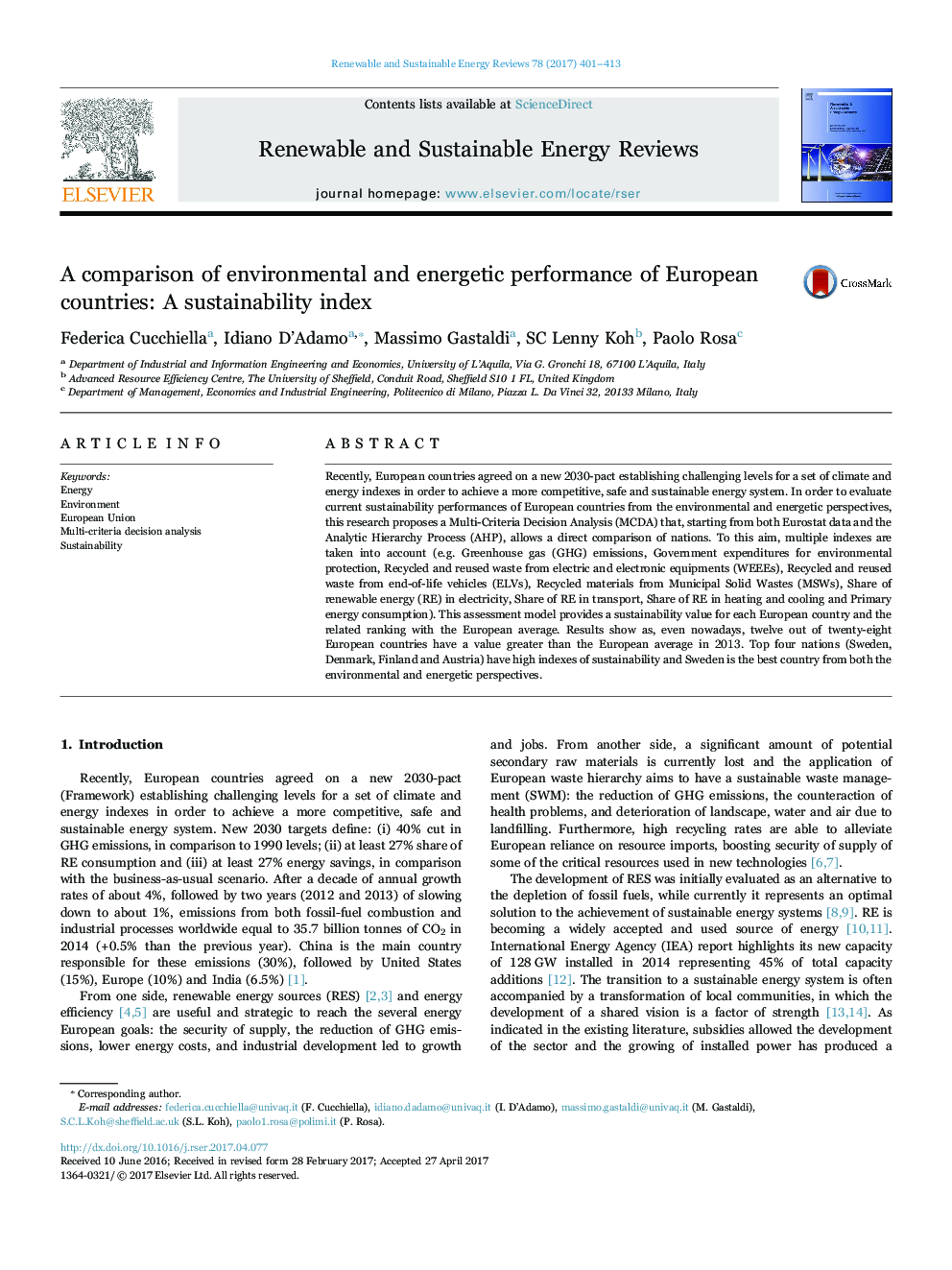| Article ID | Journal | Published Year | Pages | File Type |
|---|---|---|---|---|
| 5482475 | Renewable and Sustainable Energy Reviews | 2017 | 13 Pages |
Abstract
Recently, European countries agreed on a new 2030-pact establishing challenging levels for a set of climate and energy indexes in order to achieve a more competitive, safe and sustainable energy system. In order to evaluate current sustainability performances of European countries from the environmental and energetic perspectives, this research proposes a Multi-Criteria Decision Analysis (MCDA) that, starting from both Eurostat data and the Analytic Hierarchy Process (AHP), allows a direct comparison of nations. To this aim, multiple indexes are taken into account (e.g. Greenhouse gas (GHG) emissions, Government expenditures for environmental protection, Recycled and reused waste from electric and electronic equipments (WEEEs), Recycled and reused waste from end-of-life vehicles (ELVs), Recycled materials from Municipal Solid Wastes (MSWs), Share of renewable energy (RE) in electricity, Share of RE in transport, Share of RE in heating and cooling and Primary energy consumption). This assessment model provides a sustainability value for each European country and the related ranking with the European average. Results show as, even nowadays, twelve out of twenty-eight European countries have a value greater than the European average in 2013. Top four nations (Sweden, Denmark, Finland and Austria) have high indexes of sustainability and Sweden is the best country from both the environmental and energetic perspectives.
Related Topics
Physical Sciences and Engineering
Energy
Renewable Energy, Sustainability and the Environment
Authors
Federica Cucchiella, Idiano D'Adamo, Massimo Gastaldi, SC Lenny Koh, Paolo Rosa,
